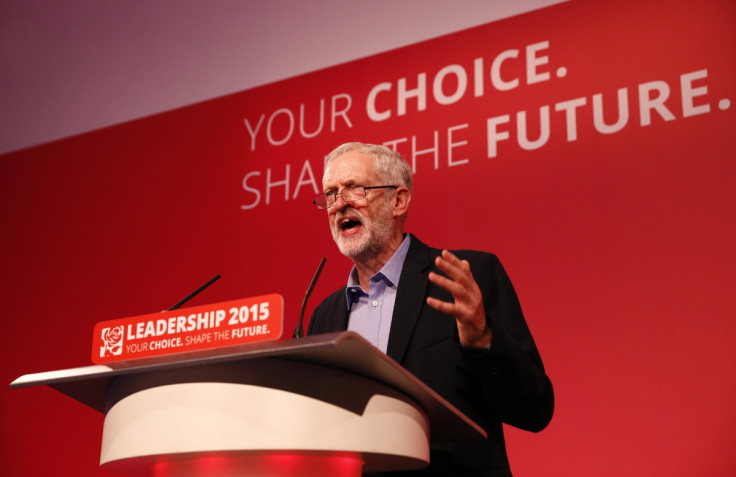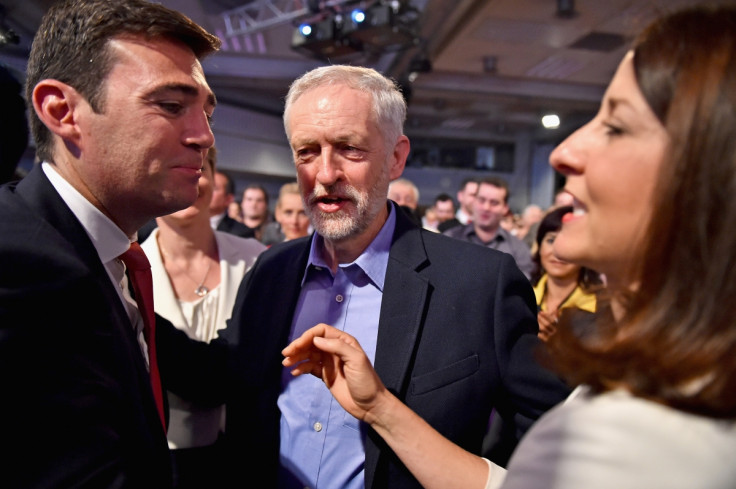Jeremy Corbyn: What the business world thinks of the new Labour leader

After winning a landslide victory to become the new Labour leader, Jeremy Corbyn appointed fellow die-hard left winger John McDonnell as shadow chancellor, pulling the political opposition more towards the left. Although the Tory government has launched an attack on the 66-year-old's international policies and military stances, the business world is more concerned about what the socialist will mean for the UK economy, the City and business in general.
Nigel Green, chief of independent international financial consultancy deVere Group, said the economic policies of the Labour leader are detrimental to Britain's pro-business reputation. He said: "He seems utterly determined to drag Britain back to the 1970s, an era in which the UK was strangled by high taxes and an inflexible labour market. If he thinks high taxes and inflexible labour is the way forward in today's world, I suggest that he looks at France in the first years of Hollande's presidency."
IBTimes UK has looked at the responses from representing business bodies to see if they share Green's dramatic view on the former backbencher.
The Institute of Directors has congratulated Corbyn on his anticipated victory. Its director general, Simon Walker, said: "It is no secret that business has not always seen eye-to-eye with the new leader of the opposition. From renationalising the railways, to raising taxes on businesses and increasing government spending, Mr Corbyn has proposed some policies in the leadership campaign that we believe would undermine our open and competitive economy.
"Politicians and business leaders are never in perfect agreement on how the economy should be managed, irrespective of who is in government, and who in opposition. We will continue to engage with Labour honestly and directly on behalf our members, who represent businesses large and small across the UK, and hold a variety of political views.

"When Jeremy Corbyn outlined his vision for the future in The Economy in 2020, he said that 'wealth creation is a good thing'. We agree, and hope to work with him on the big economic challenges the UK faces, such as improving the productivity and skills of the workforce.
"There are important ongoing debates on state investment in infrastructure, how to tackle examples of excessive pay at big companies, and how to increase diversity in senior management. Businesses will make their case sincerely on these issues, and we very much hope the Labour party will be prepared to listen.
The Confederation of British Industry did not waste too much time but said it was excited to cooperate with the new leader. Its director general commented: "We congratulate Mr Corbyn on his election. The country needs a strong opposition, and businesses will want to see the new Labour leader supporting a pro-enterprise agenda that will spur growth and create jobs across the UK. We look forward to working with Mr Corbyn in his new role."
The Royal Institution of Chartered Surveyors, the main body for the land and property industry, said it is happy with the alternative Corbyn is offering, although some of his policies might be "challenging". Head of UK policy Jeremy Blackburn said: "Jeremy Corbyn's election to the Labour Party leadership, after the uncertainty of that followed Ed Miliband's resignation, shows how many Labour members and voters have an alternative vision for Britain.
"He has raised some challenging but principled issues around the expansion of Right to Buy to private landlords as well as providing a voice for the widely felt dissatisfaction of privatisation in our rail sector. There is opportunity in his agenda around infrastructure and public spending to get Britain building, and we look forward to sitting round the table and discussing this further."
"With property, planning and development more central to Britain's economic future than at any time before, stability and a clear vision for this sector will be crucial to securing the growth, prosperity and equity of this country for the next generation.
"This is an opportunity as well to carry on the good work done on housing, planning and infrastructure before the election. As leader of the opposition, it is important that he makes a strong start and focuses on the parliamentary scrutiny of the government's agenda, not least the Housing and City Devolution Bills."
The Federation for Small Businesses commented that it is looking forward to work with the new Labour leader. It said: "The FSB works with all major political parties to tackle the challenges small businesses face, and we will be representing our members at each of the key party conferences in the coming months.
"There we will watch with anticipation to hear how the Labour Party plans to go on backing the UK's 5.2 million small businesses and the many millions of people they employ."
The British Chambers of Commerce also congratulated the MP on his victory. John Longworth, its director general, said: "Businesses across the UK want a strong, effective opposition, no matter the political colour of the government of the day.
"We will be looking for the opposition to take a pragmatic and practical approach to business, recognising that wealth creation is the necessary prerequisite for the delivery of any political objectives. The role of business and economic growth in British society must be front and centre as the new Labour leadership develops its policy priorities.
"Britain's businesses are the engines of job creation and economic growth. It is important that all governments and opposition parties recognise this fact if they want to achieve lasting results and change. We look forward to beginning a dialogue with the new leader of the opposition and his team in the weeks ahead. Firms will be encouraged by recent statements favouring much-needed investment in the UK's inadequate infrastructure and skills."
Overall, the view of business representatives seem less negative on the victory than some analysts might have expected. The organisations depend on a strong opposition, which Corbyn, as a veteran left-winger, can provide without a doubt.
IBTimes UK reached out to the British Bankers' Association but its spokespeople said the organisation did not want to comment. Manufacturing organisation EEF has not given a response yet either but said it might comment on Corbyn's policies once they are announced.
© Copyright IBTimes 2025. All rights reserved.






















